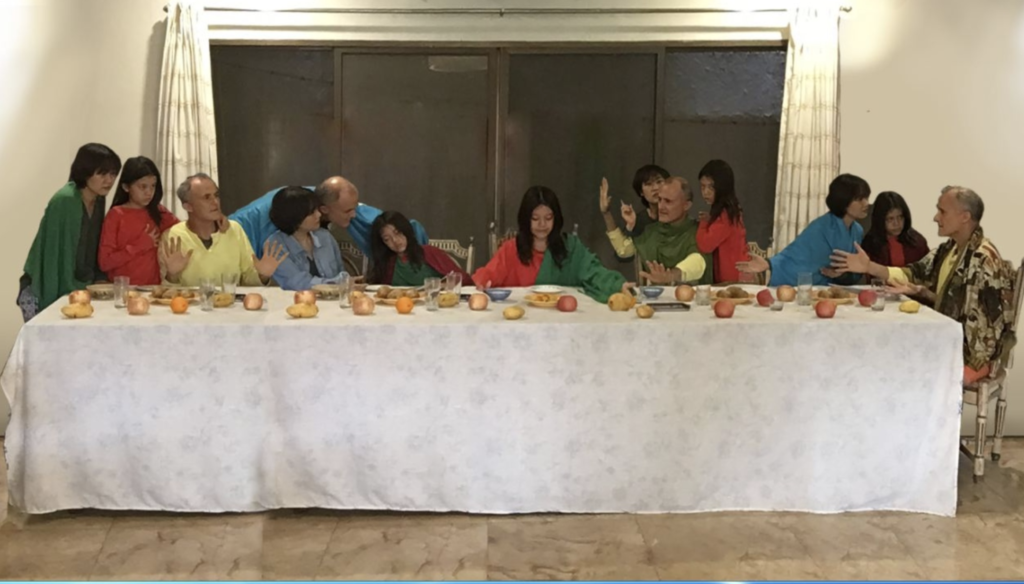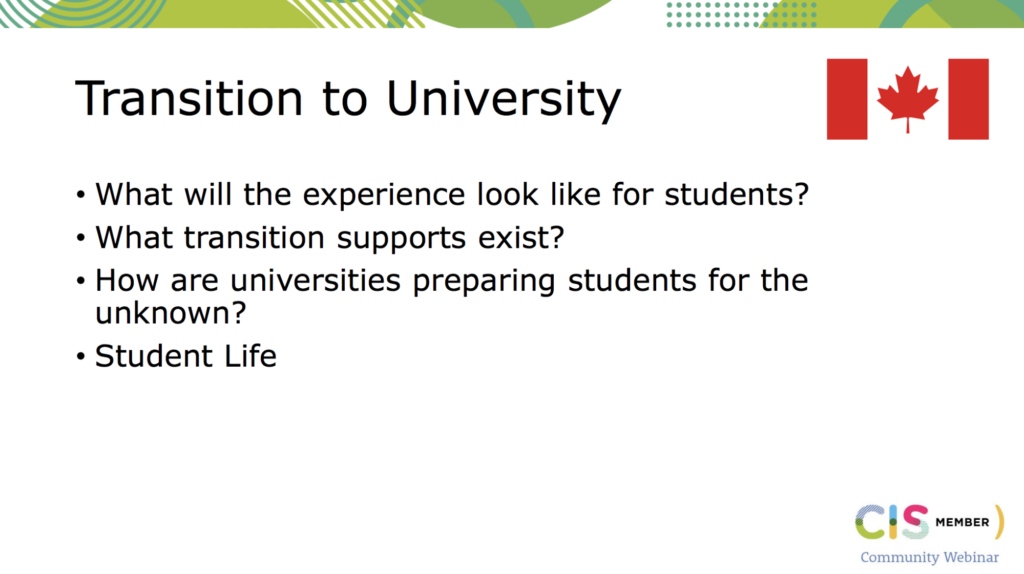
Elementary News
by Mr. Glenn Davies, Elementary Principal/PYP Coordinator
Dear Elementary Community,
This morning I was incredibly proud to watch the third Elementary Remote Learning Assembly. This assembly is a wonderful showcase of the extensive teaching and learning that has been taking place across the elementary school over these past weeks. It is clear to all those who see this assembly, that teaching and learning is very much alive across our school community.
There are a number of acknowledgments to given, as to produce an assembly like this takes an amazing amount of organization, time, and hard work. Coordinating this event and building the video has been our Elementary Student Council teacher coordinators – Ms. Vangie Belono-ac, Ms. Tara Bersabal, and Ms. Aimee Sesbreño. Next, we need to acknowledge the elementary teachers who have spent hours each day creating and preparing lessons, providing feedback on learning, and engaging in numerous video calls with whole classes and with individual students. Teachers begin their workday around 7.30am and I see many are still active in the evening, working at times when the internet may be more stable. In most cases we see teachers putting in longer school hours than they would be in normal circumstances. Each day teachers are reviewing the learning that has taken place, then designing new learning experiences to build upon previous learning. It can be difficult to appreciate how these fit together when working alone at home, and this assembly really helps bring everything together.
Next, our students need to be acknowledged. The independence and motivation the students have continued to display over this remote learning period is a testament to the skills, attitudes, and competencies they have as young people, who are preparing to become successful in a rapidly changing world. Despite being isolated from one another, their learning has continued.
Finally, and very importantly, we must acknowledge our parent community. This period of remote learning has been particularly challenging for you, our parents. You have been with your child 24/7 for a number of weeks now, and many of you have also been the homeschool teacher. This is very intensive. CIS has always placed a high level of value upon the home school partnership, and remote learning has further heightened the importance of this connection. We are grateful for your support.
For your reference, remote Learning Assembly 1 and 2 can be located here, along with our CIS Remote Learning Website.

Celebration of learning – Three Way Conferences and Reports
At this time of year, CIS would normally hold Student-Led Conferences as a celebration of learning. This year the process will look a little different. Teachers have begun writing the end of year reports, and next week you will receive a short survey where you will be asked to provide some feedback on your child’s Approach to Learning (ATL) skills and attitudes during the remote learning period. Your observations will become part of the end of the year report card. During the week of May 25th to 29th a remote Three-Way Conference (3WC) will be scheduled where you, your child, and the teacher can discuss this ATL progress together.
-
- 14th – 19th May: ATL survey sent home
- 25th – 29th May: Schedule 3WC
- 5th June: Report cards emailed home
Parent and Family Support
At CIS we are very aware of the challenges families face as they deal with the effects of long term lockdown. This Family Support Facebook Community page may be one way you can find support from others who are dealing with the same challenges. https://web.

Middle and High School News
by Mr. Dale Wood, Middle and High School Principal
We have presented perspectives about and approaches to assessments in past editions of the Newsflash, and we want to revisit the topic again this week since our final assessments are on the horizon and also since this is the first time we are experiencing these end-of-year assessments (which are often perceived as “high stakes”) in the context of remote learning. I think it’s important to share these thoughts as final assessments can be a scary thing and may be even scarier in light of our situation.
 The three essential components which intersect and interact with each other in our educational structure are standards, curriculum, and assessment. Standards are the skills and content we are leading our students to master within their respective courses and, when possible, between them. Curriculum (which comes from the Latin word meaning “a race,” or better- “a running”) is the “course” or path we follow to achieve these standards. Assessment is the way we measure the level of student mastery of those standards. All three pieces are critical, but assessment is the one focused on measuring student learning; as student learning is the central focus of our core beliefs, it could be argued that it is the most important of the three. For example, we might think we have done a great job of teaching a concept or that our students have met certain course standards, but we won’t know whether or not this is true unless our students can demonstrate their skills and knowledge, and this is done through assessment.
The three essential components which intersect and interact with each other in our educational structure are standards, curriculum, and assessment. Standards are the skills and content we are leading our students to master within their respective courses and, when possible, between them. Curriculum (which comes from the Latin word meaning “a race,” or better- “a running”) is the “course” or path we follow to achieve these standards. Assessment is the way we measure the level of student mastery of those standards. All three pieces are critical, but assessment is the one focused on measuring student learning; as student learning is the central focus of our core beliefs, it could be argued that it is the most important of the three. For example, we might think we have done a great job of teaching a concept or that our students have met certain course standards, but we won’t know whether or not this is true unless our students can demonstrate their skills and knowledge, and this is done through assessment.
As we are moving toward our MYP authorization, I have asked Jonathan Denton, our MYP Coordinator and Assistant Principal, to share about the approach to assessment in the MYP, which is creating a positive shift already in the way we approach measuring our students’ achievement. It is really helpful to understand this, as due to MYP we are moving away from some of our traditional assessment measures like final exams to more authentic and full-orbed methods which allow our students to demonstrate a wider array of skills and do so with greater critical and creative thinking.
In the MYP Assessment should focus on student Mastery; it should never be a Mystery
Imagine an assessment where you are given the answer scheme ahead of time; where you know how you have done before the teacher even looks at your work; where you are able to discuss your achievement level with your teacher, and, if you do not agree with it, can request moderation from another teacher. No need to imagine. This is the reality of assessment in the MYP.
Before getting into the nitty gritty I would like to lead you all away from using the term “grades” to assess student growth and embrace the term “achievement levels”. While this may strike you as being unnecessary, it is fundamental to understanding the MYP’s philosophy and approach to assessment.
A “grade” is loosely defined as a particular level of rank, quality, proficiency, intensity, or value. “Grades” represent different things in different countries, states and schools. They can even mean different things to different teachers in the same school! They are awarded by teachers to evaluate the quality of a student’s work.
MYP achievement levels are defined by a set of descriptors that paint a clear and transparent picture of a student’s current level of understanding within that subject. Achievement levels are earnt by students when they demonstrate the qualities that are defined by the descriptors. Furthermore, these levels are standardised in a manner that a student receiving an achievement level of “four” at CIS would receive the same level of achievement from every teacher in any MYP school throughout the world.

What is criterion-based assessment
When a food guide is given the task of reviewing restaurants to include it in a “Best Restaurants in Cebu” magazine, instead of giving one overall grade they will often give scores for different criteria to ensure that the process is fair and transparent. Criteria may include such aspects as: the quality of the food, creativity of the chief, atmosphere, service, and value for money; a restaurant may rate as follows on those established criteria:
Quality of food: ✵✵✵ Creativity of chef: ✵✵✵✵ Service: ✵
Atmosphere: ✵✵✵ Value for money: ✵✵
Overall Rating: ✵✵✵
The review above shows that the restaurant has scored better in some areas than others. We can also clearly see here that, if it wants to improve, it needs to both focus on developing better service and recalibrate its prices.
Assessment in the MYP is similarly criterion-based, just like the example above. Instead of only being given one overall grade for a subject, each subject is assessed according to four subject specific criteria. Each criterion is divided into 8 levels of achievement ranging from 1, where the student is beginning to develop the fundamental skills, to 8, where the student is consistently demonstrating higher order thinking skills. This helps us clearly identify student’s strengths and weaknesses. Here is a simplified version of the achievement levels:

Furthermore, the IB framework is standardised in a manner that a student receiving an achievement level of “four” at CIS would receive the same level of achievement from another teacher in any other MYP school throughout the world.
The Assessment Process at CIS
 At CIS we have a clear and transpartent process of assessment in place, broken down into 5 clear stages. Key characteristics of the process are:
At CIS we have a clear and transpartent process of assessment in place, broken down into 5 clear stages. Key characteristics of the process are:
- Students are presented with the learning criteria for every assessment ahead of time
- students need to self-assess their work before submitting it for assessment, justifying the levels they have awarded themselves against the learning criteria
- if a student disagrees with the level they have been awarded by the teacher they may set up a meeting with that teacher or even ask for it to be moderated by another teacher (within a 2 week period)
How achievement levels are determined
A student in Science is asked to discuss and evaluate the various implications of using Science and its applications to explain the outbreak of the COVID-19 virus. They will be marked against the following criteria:

To determine the students achievement level we start with level 1-2 and work our way up to level 7-8. Please note how outlining, where a student gives a brief account of the implications, differs considerably from discussing, where a student is expected to offer a balanced perspective based on a range of arguments and opinions. This skill of being able to discuss rather than outline is transferable to all subjects. If they know how to discuss in Science, they will know how to discuss in Maths, in Physical and Health Education, in Design and in Art. This constructionist approach will enable students to be successful in all their subjects.
The bottom line
To determine the final overall achievement level on a report card, teachers must gather sufficient evidence from a range of assessment tasks to enable them to make a professional and informed judgment. Particular attention is paid to patterns in the data (such as an increasing level of performance), consistency and mitigating circumstances.
It is important to note, the following assessment practices are inappropriate and are counter to MYP assessment principles:
- Determining an achievement level using a proportion of scores for classwork, homework and tests
- Determining an achievement level by averaging summative performance scores over the year
- Using single pieces of work to determine the final achievement level
So the bottom line to understanding your child’s MYP achievement levels and their competency in the subject, you need to read the descriptor.
Celebration of Learning Update
Our MHS Celebration of Learning is one of our highlights for the end of the school year, as it provides an opportunity for our students to share their highlights from the school year, not only with their parents, but with the entire school community. We had planned on holding this event on May 27, but with our remote learning context extended as it has been, we will have to reschedule and adapt this event, likely to be conducted within a virtual format. We will be able to share more details in the near future.
College & Careers Counselor Corner
Virtual Education USA Fair

The Virtual Education USA Fair was held yesterday afternoon (Thursday, May 7) with more than 15 colleges and universities in
attendance. There were sessions on college essay writing and individual lectures on the admission process and requirements for each college.
Below was the list of universities/colleges in attendance with the contact details of the university representatives. If you want to learn more about these institutions, please feel free to email Ms. Basa at jbasa@cis.edu.ph.
| Institution | Representative |
| University of Akron | Jennifer Dixon jkd15@uakron.edu |
| Allegheny College | Christopher Segur csegur@allegheny.edu |
| University of Arizona | Seungyoon Han seungyoonhan@arizona.edu |
| University of Delaware | Emily Liu emilyliu@udel.edu |
| Hamilton College (undergrad) | Anna Wise awise@hamilton.edu |
| University of Maryland, College Park | Janan D. Thom jthom@umd.edu |
| Northeastern University | Orawan Phongsai o.phongsai@northeastern.edu |
| University of North Texas | Gordon Clark Gordon.Clark@unt.edu |
| Penn State University | William T. Shuey wts5003@psu.edu |
| Rochester Institute of Technology | David Wivell djwges@rit.edu |
| San Francisco State University | Alexander Chang achang@sfsu.edu |
| Stony Brook University - SUNY | Youssef Wahib youssef.wahib@stonybrook.edu |
| Temple University | Claire Wilkins claire.wilkins@temple.edu |
| Virginia Tech | Tyler Oxley toxley@vt.edu |
| University of Wisconsin - Milwaukee | Tracy Buss tbuss@uwm.edu |
| Citrus College | Coe Lamoureux CLamoureux@citruscollege.edu |
| College of Lake County | Colleen Gray cgray6@clcillinois.edu |
| Foothill+De Anza Colleges | Marilyn Cheung CheungMarilyn@fhda.edu |
| Saint Paul College | Carol Myint carol.myint@saintpaul.edu |
Council of International Schools University Webinars
Students and parents have concerns around how the current Coronavirus pandemic will impact the admission process in universities. The school is participating in a series of country-specific webinars which features a panel of university representatives. They discuss how admissions procedures and university policies are adjusting given the circumstances we are faced with.
“Monitoring a Changing Landscape” a series of webinars with titles below:
-

(slide from “Monitoring Changing Landscapes – A conversation with Canadian universities”) Will students get to university this year?
- A conversation with universities in Canada
- A conversation with universities in the UK
- A conversation with universities in the Netherlands
- A conversation with universities in Italy
- A conversation with US universities
- A conversation with Irish universities
- A conversation with universities in Spain
- A conversation with universities in Australia
- A conversation with universities in Germany
The first three webinars have passed while the others are coming up weekly. If you are interested in joining the webinar or learning more about a specific country or university’s policy, please email Ms. Jenny Basa at jbasa@cis.edu.ph. Aside from the above sessions offered by Council of International Schools, individual institutions are in constant contact with our school to update us on any developments or changes to their admission process.
Info Session with GPSA
Some students in Grade 10 and 11 took part in an info session by the Global Public Service Academy (GPSA). The speakers were Dr. Bob Malkin of Duke University who is also the founder of the organization and Vanessa Brombosz who works with the Operations department. The program they offer is a Global Pandemic eservice curriculum which contains live sessions with Duke and GPSA staff, pre-recorded sessions, videos and textbook material. The start and end time of the program will be determined after consultation with students who will decide to register for the program. Students will earn a certificate upon completion of the e-course. For more information, please check this link: https://gpsa.org/
Upcoming SAT Test Dates
The College Board will come up with new testing dates soon. Please check on this link for updates: https://pages.collegeboard.org/sat-covid-19-updates




